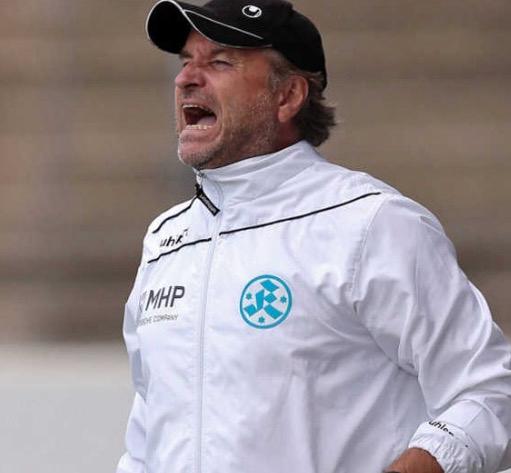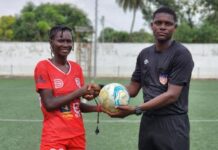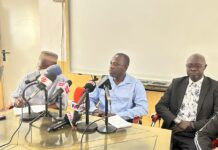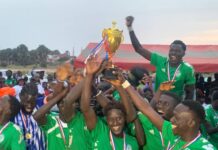The head coach position of the Scorpions has been vacant since Belgian gaffer Tom Saintfieit resigned to take over Philippines following Gambia’s failure to get to the second round of the 2023 AFCON in Cote D’Ivoire.
Many coaches have applied for the Gambian job and one of them is German gaffer Alfred Kaminski.
The Alkamba Times caught up with the 60-year-old who has worked in his native country with clubs and youth setups notably Kickers Offenbach, FC Saarbruecken, SV and Werder Bremen. Kaminski is a UEFA Pro LICENSE holder.
Have you followed the Afcon?
Absolutely, I’ve been following the African Cup of Nations for years! This year’s tournament has already showcased numerous interesting and thrilling matches at a high level. The last group game between Gambia and Cameroon was exceptionally exciting towards the end – a true football thriller! Seeing Cameroon’s determination coming back to win 3-2 against Gambia in a nail-biting finish, with Christopher Wooh scoring in stoppage time, was a testament to the unpredictable and exhilarating nature of African football.
What’s your perspective on African football?
African football has continuously developed over the past few decades. This progress is evident in individual players performing at the highest level and in international tournaments like the World Cup. The continent has given rise to world football superstars like Sadio Mane, Mo Salah, Kalidou Koulibaly, and Hakim Ziyech. However, a few things are still missing to compete for the title. The level across the continent has become tighter at the top, as shown by the surprising group stage exits of teams like Ghana and Algeria. There’s a rising standard, but it needs more structural support to reach its full potential.
Where do you see the development of African Football in the next 5 years?
I hope to see the development of even stronger players and teams, enabling African nations to compete for the World Cup title. Africa has the potential to become a significant force in world football. The measures for this, however, vary across different countries. I would like to contribute my expertise and knowledge here. Structured preparation for tournaments, detailed organisation to minimize reliance on chance, and players focusing solely on their tasks are crucial. Advancing through European-influenced play and training management, analytical evaluations, performance diagnostics, and additional modern training methods can vastly improve individual players.
What lessons can African countries learn from the German experience in football development?
In Germany, there’s a notable emphasis on structured and detailed organization around teams. Little is left to chance. There are developmental plans not just for youth but for continuous player development. With extensive media coverage even in lower leagues, there are additional scouting opportunities. The technical equipment is top-notch, and there’s a perpetual system for training coaches and staff. The structured league system from youth to senior levels is exemplary. Germans value details and discipline, but it’s essential to balance this with maintaining strengths like creativity and spontaneity, which I consider being significant strengths of African football.
What’s your impression on grassroots football development in Africa?
It’s challenging to generalize across Africa, as each country varies. However, I would like to see further development. More projects like the BK West United FC project and Gambinos which focuses on structured grassroots work and the development of transparent competitions and tournaments, would be beneficial. The amazing projects in Sénégal like Generation Foot, Diambarr and others. In Mali with Yeelen and many other successful football projects. The foundation for growth in African football lies in strengthening these grassroots initiatives, ensuring that the raw talent at this level is nurtured with the right resources and guidance.
Have you ever been to Africa?
Yes, I have been to Africa several times, visiting countries in both the northwest and south of the continent.
The Gambia had lots of foreign coaches, and Tom Saintfiet had a successful stint. What can the Gambia expect from your reign in terms of style, organisation, and development?
I see the national coach as a team player with special tasks, working with the association, clubs, and respective players within the country’s guidelines to further develop football. Thus, I see myself as a team player who sets guidelines. In organizations, there are always areas that can be optimized. This was also shown by the preparations for this year’s Africa Cup. Training and scouting should be adapted to higher standards. Here, I don’t just mean the men’s game but particularly the youth sector. The teams should act actively and bravely, use their technical skills, and show great fighting spirit for their country.






